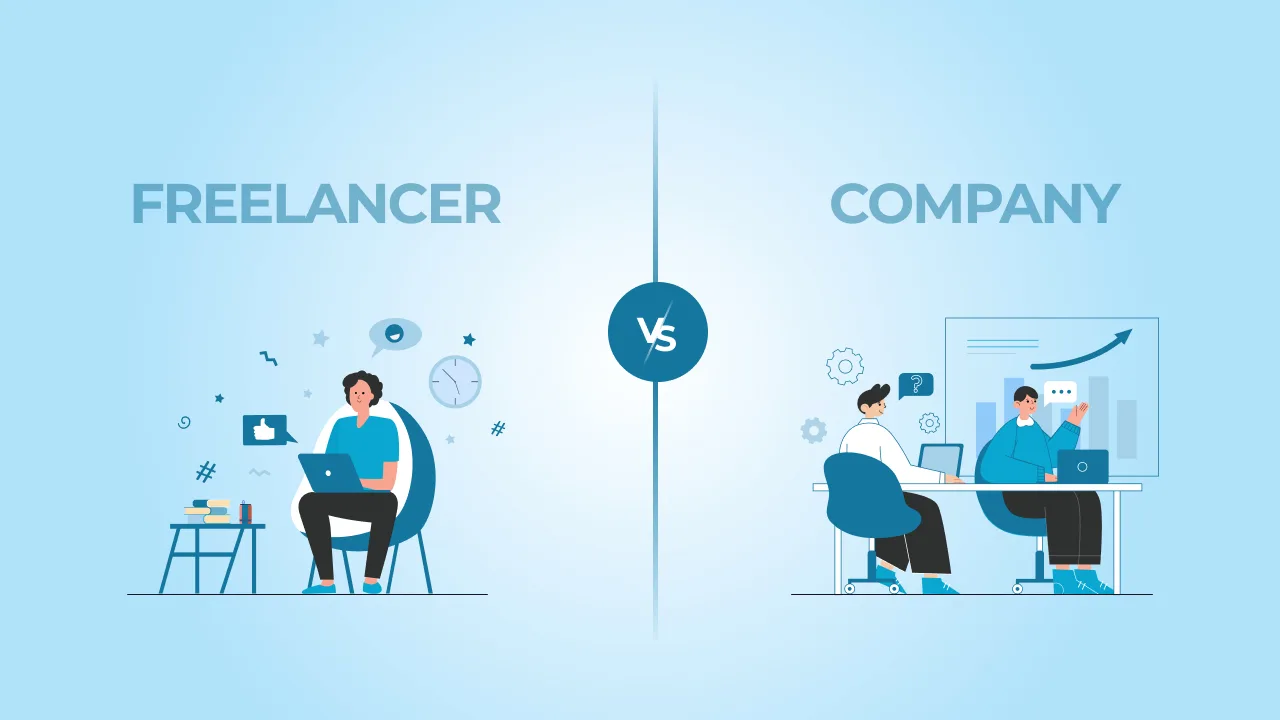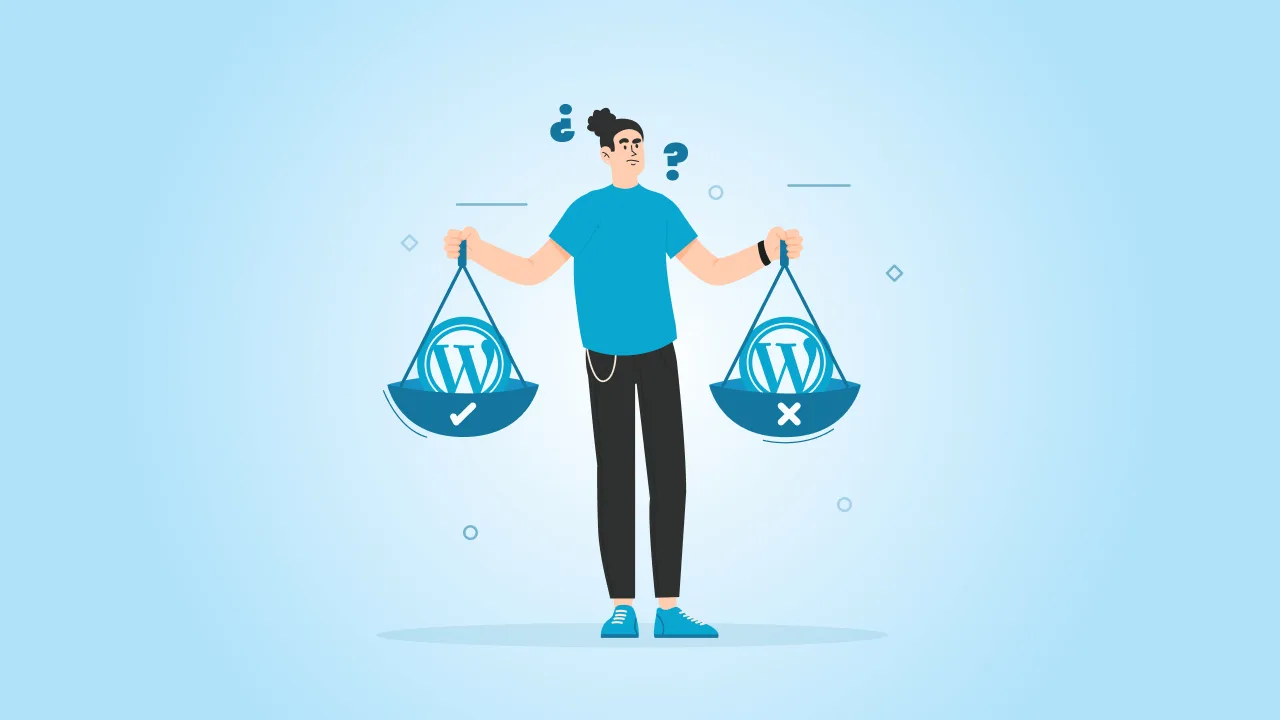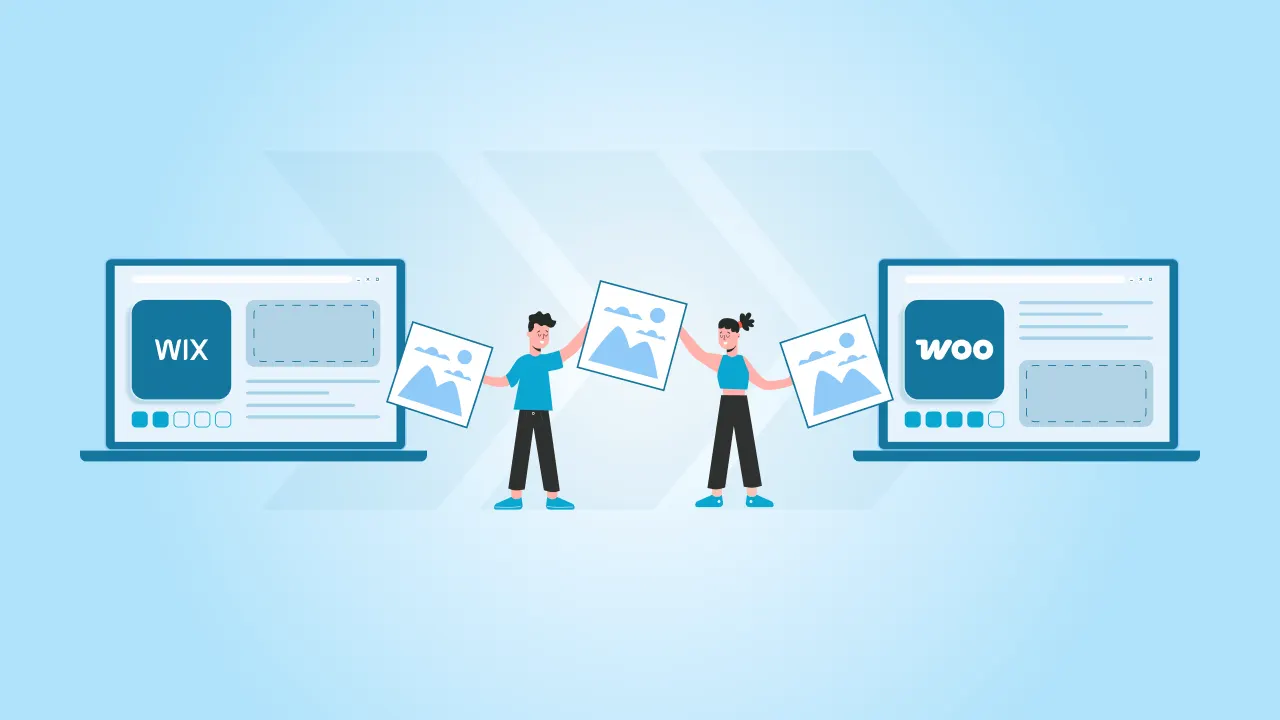When someone visits a website, they form an impression within seconds. Imagine coming across a site that’s visually appealing, easy to use, and gives you exactly what you are looking for without any hassle. That’s the result of thoughtful website development.
In this post, we will dig into what website development means, walk through the steps that go into building a website, and look at why it’s essential. Whether you are an entrepreneur, a creative, or just someone curious about the digital world. Understanding website development can help you create an online presence that stands out and makes a difference.
Key Takeaways
- Website Development Defined: Website development is the process of creating, designing, and maintaining a site to ensure it’s visually appealing, functional, and user-friendly.
- Types of Development: Front-end (user-facing), back-end (server-side), and full-stack development each play unique roles, along with specialized types like CMS and e-commerce development.
- Why It Matters: A well-developed website enhances brand credibility, improves user experience, supports SEO, boosts conversions, and allows room for growth.
- Essential Tools and Trends: From programming languages to responsive design, PWAs, and cybersecurity, understanding the latest tools and trends keeps your website relevant and secure.
What is Website Development?
In simple terms, website development is the process of building, creating, and maintaining websites that are visually appealing, easy to navigate, and functional. It’s a blend of technical skills, creativity, and strategy, aimed at making a site that not only looks good but works seamlessly for users.
Core Components of Website Development:
- Web Design: This is all about the visual layout, colors, fonts, and overall look and feel of the site. Good web design makes a website attractive and easy to use, enhancing the experience for visitors.
- Web Content: The heart of a website is its content—text, images, videos, and other information displayed on the pages. Content is what tells your story, conveys your message, and engages users.
- Programming: This is the technical part, using languages like HTML, CSS, and JavaScript to bring the website to life. Programming ensures the site functions correctly, enabling features like navigation menus, interactive forms, and more.
- Database Management: Behind the scenes, databases store and manage all the content and data on a website. For example, user information, product details, and blog posts are often stored in databases, making it easy to update and manage content.
Types of Website Development
Website development comes in different forms, each with a unique focus and role in building a fully functional site. Here’s a quick look at the main types of website development:
- Front-End Development: This is the part of website development that users interact with directly. Also called “client-side” development, it involves designing the layout, buttons, and navigation, along with all the elements users see and engage with. Using tools like HTML, CSS, and JavaScript, front-end developers create an attractive, intuitive experience.
- Back-End Development: Often described as the “server-side” of development, back-end work happens behind the scenes. It involves setting up and managing the server, databases, and the logic that powers the website. This setup may depend on your hosting model—understanding the pros and cons of on premise vs cloud infrastructure can influence cost, scalability, and maintenance requirements. Back-end development is responsible for making sure the site functions smoothly, handling tasks like processing user logins, storing data, and connecting the front end with the database.
- Full-Stack Development: Full-stack developers have skills in both front-end and back-end development. They can handle everything needed to build a complete website, from how it looks to how it operates. This makes full-stack developers versatile and highly valuable in website development.
Other Specialized Types:
- CMS Development: Content Management Systems (CMS) like WordPress, Joomla, or Drupal are platforms that make it easier to manage and update website content without deep coding knowledge. CMS web development focuses on building websites that can be easily edited and maintained using these systems.
- E-commerce Development: This type of website development is tailored for online stores. E-commerce sites need unique features like shopping carts, product pages, payment gateways, and inventory management. Developers in this area build websites optimized for selling products and providing a seamless online shopping experience.
- Mobile and Responsive Development: In today’s mobile-first world, websites need to work well on all screen sizes. Mobile and responsive website development ensures that a site looks and functions smoothly on smartphones, tablets, and desktops. It’s all about adapting the site to provide a great experience, no matter the device.
Turn your big ideas into a stunning website with the experts at cmsMinds. Ready to stand out?
7 Key Stages of Website Development Process
Now, creating a successful website is a step-by-step journey. Here’s a breakdown of each stage in the website development process:
1. Planning and Research
The foundation of any great website starts with a solid plan. In this phase, you’ll define your website’s goals, identify your target audience, and sketch out the site’s structure. This includes creating a site map to visualize the layout and navigation, helping ensure the site meets users’ needs.
2. Design
With the plan in place, it’s time to bring the visuals to life. The design phase focuses on creating the overall look and feel, including the layout, colors, fonts, and style. A good design is both attractive and functional, helping guide visitors smoothly through the site.
3. Content Creation
Content is what brings a website to life. In this step, you will create all the text, images, videos, and other media that tell your story, communicate your message, and engage visitors. Well-crafted content is essential to building connections with your audience and achieving your site’s goals.
4. Development
- Front-End Development: This part involves coding the user-facing side of the website using HTML, CSS, and JavaScript. Front-end development brings the design to life, creating the interactive elements and layout visitors will experience.
- Back-End Development: Here, developers work on the “behind-the-scenes” elements like the server and database. This step ensures that the site functions smoothly and handles data properly, such as processing logins or storing information.
5. Testing and Quality Assurance
Before going live, it’s crucial to test the site thoroughly. This involves checking for bugs, ensuring everything displays correctly on different browsers and devices, and confirming that all features work as expected. Quality assurance makes sure the site provides a smooth experience for all users.
6. Launch
Once everything is ready, the site is moved to a live server, making it accessible to the public. Launching a website is an exciting step, but it often involves a few final checks to ensure the transition is smooth.
7. Maintenance
After launch, a website still needs regular attention. Maintenance includes updating content, fixing any issues that come up, improving security, and keeping the site’s performance optimized. Regular maintenance keeps the site fresh, secure, and aligned with evolving needs.
Why Website Development Matters
Honestly, a well-developed website is much more than just an online presence—it’s a powerful tool that can drive success in multiple ways. Here’s why website development is so important:
- Business Credibility and Brand Image: First impressions count, and a professionally developed website immediately boosts credibility. A sleek, well-organized site reflects positively on your brand and shows that you take your business seriously, which helps build trust with visitors.
- User Engagement and Experience: Good website development makes for a smooth, enjoyable user experience. When visitors find a site easy to navigate and visually appealing, they’re more likely to stay, explore, and even return. Engaging and satisfying user experiences lead to higher levels of interaction and customer loyalty.
- Search Engine Optimization (SEO): A well-structured website is easier for search engines to understand and rank. Website development plays a big role in SEO by improving site speed, usability, and structure—all of which contribute to higher search engine rankings and, ultimately, more organic traffic.
- Revenue and Conversions: A functional, user-friendly website encourages visitors to take action, whether that’s making a purchase, signing up for a newsletter, or filling out a contact form. Every aspect of a well-developed website is designed to guide visitors toward these conversions, leading to increased revenue and achieving business goals.
- Scalability and Growth: As your business grows, your website needs to keep up. A strong website foundation makes it easy to add new features, expand content, and scale up as you attract more visitors. With a well-developed site, you can adapt to new opportunities and evolving customer needs without starting from scratch.
Common Tools and Technologies in Website Development
Website development relies on a variety of tools and technologies to bring ideas to life. Here are some of the most commonly used ones:
1. Programming Languages
Every website starts with basic languages like HTML, CSS, and JavaScript. HTML structures the content, CSS styles it and JavaScript adds interactive elements. For more advanced functionality, developers often use languages like Python or PHP, which enable dynamic features like database interactions and user authentication.
2. Frameworks and Libraries
Frameworks and libraries make coding faster and more efficient by providing pre-built elements and organized code structures. Popular front-end libraries like React and Angular simplify building complex user interfaces, while back-end frameworks like Django (Python) streamline server-side development.
3. Content Management Systems (CMS)
Content Management Systems like WordPress, Joomla, and Drupal make it easy to create and manage content without needing extensive coding skills. They’re especially helpful for blogs, business sites, and other projects that require regular content updates.
4. Development Tools
Developers use specialized tools to write and organize code effectively. Code editors like Visual Studio Code (VS Code) offer features that help spot errors quickly and manage code efficiently. Version control tools like Git enable teams to collaborate on projects, track changes, and revert to previous versions if needed.
5. Testing Tools
Before launching a site, testing is crucial to ensure everything works as expected. Tools like BrowserStack allow developers to test websites on various browsers and devices, ensuring compatibility and a consistent user experience for all visitors.
Trends and Innovations in Website Development
As technology evolves, so does the approach to website development. Here are some key web development trends that are shaping modern websites:
- Responsive and Adaptive Design: With users accessing sites on screens of all sizes—from desktops to smartphones—responsive design has become essential. This approach ensures that websites automatically adjust to fit any screen, providing a smooth and consistent experience. Adaptive design goes a step further by tailoring the website’s layout for specific devices, enhancing usability and visual appeal for each visitor.
- Progressive Web Apps (PWAs): Progressive Web Apps combine the best of websites and mobile apps. They work just like regular sites but offer app-like experiences, such as offline access, fast loading times, and even the option to “install” them on a device’s home screen. PWAs are a cost-effective way for businesses to deliver an engaging mobile experience without developing a dedicated app.
- Voice Search Optimization: With the rise of voice assistants like Siri, Alexa, and Google Assistant, more people are searching online using voice commands. Websites are adapting by optimizing content for natural, conversational phrases and questions typical of voice searches. Voice search optimization helps websites reach a wider audience and improves accessibility.
- AI and Chatbots: Many websites now feature AI-driven chatbots that provide quick, automated responses to common questions, guide users through the site, and offer 24/7 support. Chatbots can enhance the customer experience by giving immediate assistance, while AI-driven personalization helps websites tailor content and recommendations based on user behavior and preferences.
- Cybersecurity: Protecting user data and preventing cyberattacks are top priorities in website development today. Modern security measures include SSL certificates, secure coding practices, and multi-layered protections to guard against hacking, malware, and data breaches. Strong cybersecurity not only safeguards information but also builds trust, reassuring users that their data is secure.
Tips for Choosing a Website Developer or Team
Now, selecting the right website developer or team is just as important as bringing your vision to life. Here are some tips to help you find the best match:
- Check Their Portfolio: Reviewing a developer’s past work can give you a sense of their style, quality, and versatility. Look for examples that align with your vision—whether that’s clean and modern, bold and colorful, or minimalist and professional.
- Know Their Skills: Different projects require different technical skills, so it’s essential to ensure the developer has expertise in the technologies and platforms that best suit your needs. For example, if you’re looking to build an e-commerce site, they should be well-versed in platforms like Shopify or WooCommerce.
- Communication is Key: A good developer will keep you updated on progress, ask questions to clarify your goals, and be open to feedback. Effective communication leads to a smoother process, ensuring the end result matches your expectations.
- Budget and Timing: Before starting, set a clear budget and ask about project timelines. Understanding costs and deadlines upfront will help you avoid unexpected expenses or delays, keeping everything on track.
Conclusion
Creating a successful website goes beyond just building pages; it’s about crafting a seamless, engaging experience that meets your goals and connects with your audience. Effective website development combines design, content, and technology to create a site that’s not only visually appealing but also functional and reliable.
If you are ready to build a website that truly stands out or want to take your current site to the next level, partnering with a skilled web development team can make all the difference. Companies like cmsMinds specialize in creating websites that are tailored to meet specific needs—whether it’s an e-commerce platform, a content-rich site, or a unique custom project. With the right support, you can build a site that not only works flawlessly but also leaves a lasting impression.
Take the next step with cmsMinds and create a website that elevates your brand, engages your visitors, and drives results.
Dreaming of a website that truly represents your brand? Let cmsMinds make it a reality.





